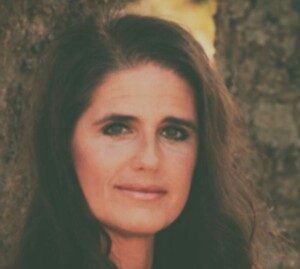Autism, Advocacy, Awareness: three words I never imagined would define a large part of my life when I became mother.
There are many other words used on a daily basis that describe, bring comfort, and sometimes answer questions when raising two children on the spectrum.
I never dreamed that any of my children would have challenges and need help learning how to speak their own language or how to swallow.
Adapting to their environment, desensitizing to objects, tastes, sounds, learning how to do basic life skills and how to exist and thrive in this world have filled their lives.
Some of this sounds very typical, but for a child with needs it can be very far from it.
Raising children comes with its own set of challenges, and when you add all of these other things to conquer, parenting goes to a whole new level.
I helped raise my two brothers, have had a daycare, and been surrounded by children my whole life, but none of this prepared me to parent children with needs.
• Learning what to do when a child doesn’t want to be touched, or they can’t wear certain fabrics or eat certain foods because of texture sensitivity.
• They scream when other people come close to them. Your child either can’t talk or when they do it is a complete guessing game of what they are trying to say to you, so communication is difficult.
• Rearranging your whole life to accommodate the needs of your child which includes not being able to go certain places because it is too overwhelming for your child.
All of these challenges and more make us grow as individuals and force us to become a different kind of parent.
These experiences with my children have led me to become an empowered advocate.
Truly from the moment of conception a mother becomes an advocate.
We start caring for our baby as soon as we know we are pregnant.
When they are born we must be their voice until they are able to speak for themselves and for some children that may never be.
Being an advocate can mean many different things depending on your child’s diagnosis and needs, but one of the most important elements is research.
As soon as you have a diagnosis or a therapy is being used with your child, research it so you understand everything you can about it.
This empowers you to empower your child in whatever challenge they are facing. I cannot emphasize this enough.
It is free and can be your biggest ally especially when helping others understand what is going on with your child and getting the best services for them in school if needed.
Advocating took a turn in my life with a traumatic experience that happened to my middle daughter in kindergarten, in her special education classroom.
After this I found myself talking to lawmakers about changing laws and making new ones to ensure the safety of all children in special ed classes.
The ‘momma bear’ inside me was unleashed and I was determined to right a wrong that I knew needed addressing not just for my child, but for any child affected by abuse or neglect.
If I had not already been advocating for my daughter I don’t know if I would have had the confidence or even know what to do in the situation I found myself in.
I have spent many years working on trying to better the world for children with challenges.
I am forever grateful that after being told I would not have children, I have three beautiful miracles who have helped me become a person and mother I could not have seen before they were born.
I think one of the most beautiful and fulfilling experiences I’ve had in my lifetime has been witnessing my child overcome a challenge.
• Hearing the words, ‘I love you Mommy,’ for the first time when my daughter was four.
• Watching my son conquer challenge after challenge with early intervention services and many hours and years of therapy.
If your child is born with a disability or challenge, don’t give up on them or put off having them checked by a doctor if you suspect something is wrong.
So many people worry about their child having a label, but not having a proper diagnosis won’t allow for them to ever receive the help they need to overcome their challenge and grow into the incredible human they already are.
You are their advocate, so empower yourself to help empower them.
I would not change our life or how my children were born. It has only enhanced my life journey, made me a much stronger woman, and taught me how to see life in many different ways.
It has breathed life into my passions and given me purpose. I am who I am today because of the challenges they have had and the drive it has given me to help empower them to be their best self — hoping they never give up on their dreams.
 Mary Elizabeth Jackson is an author, writer, educator and advocate for special needs children. A co-founder and co-host of Writers Corner LiveShow and Special Needs TV, Jackson is an Ambassador Advocate for AutismTn.
Mary Elizabeth Jackson is an author, writer, educator and advocate for special needs children. A co-founder and co-host of Writers Corner LiveShow and Special Needs TV, Jackson is an Ambassador Advocate for AutismTn.
.
Top image: Freepik.com/pvproductions
Autistic Special Interest vs. Neurotypical Hobby: the Difference?










































